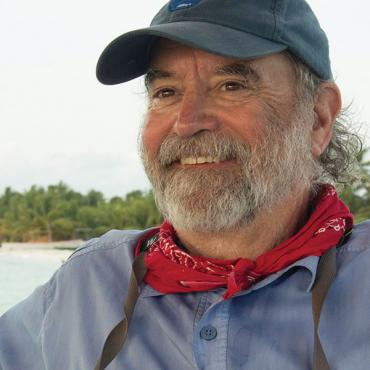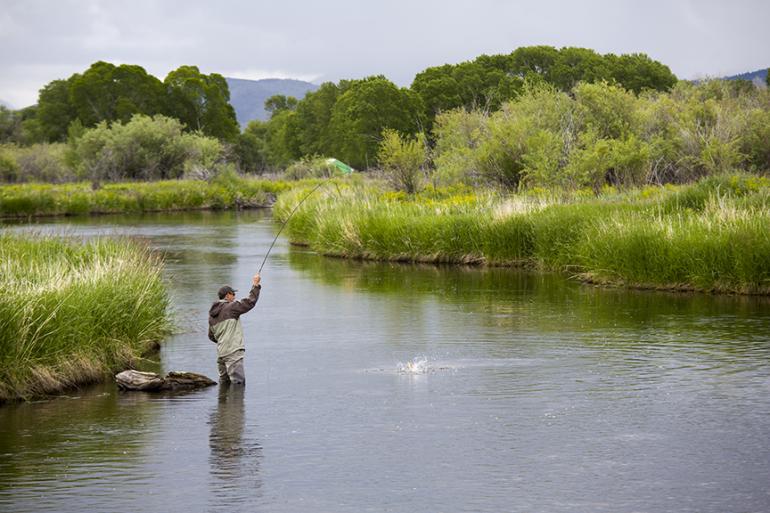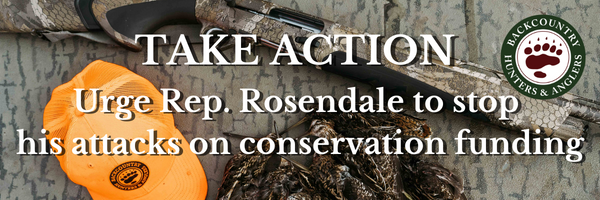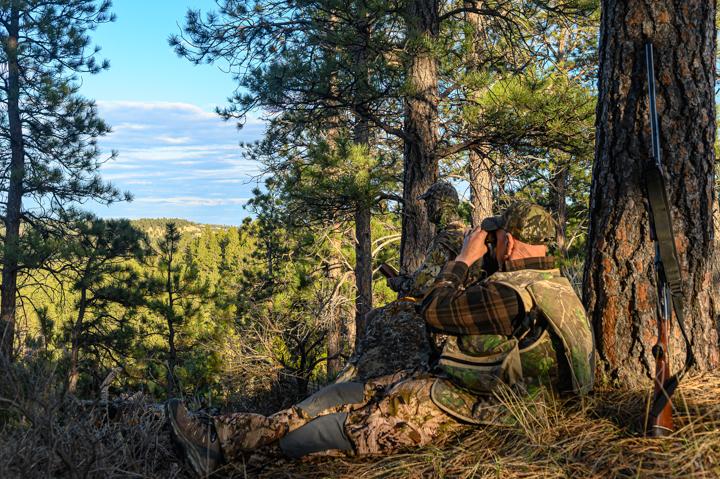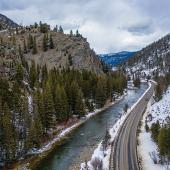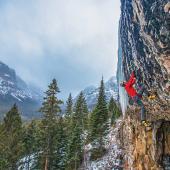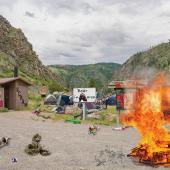How Could We Let This Happen?
Trying to make sense of Montana’s 2021 legislative session.
Those of us who live in Montana have chosen to do so for a variety of reasons, a list that does not include high wages, a moderate climate, low taxes, and the abundant cultural opportunities most urban centers offer. Among those of us who enjoy a choice in the matter, a remarkably high percentage are here because of the state’s outdoor resources and the ability to enjoy them. Hunting, fishing, skiing, rafting, hiking, photography—the individual choice doesn’t matter. No matter what it is, we need unsullied lands and waters, reasonable access to those within the public domain, and wildlife management consistent with the North American Model. Without those modest amenities, a lot of us would live elsewhere.
The latest session of the Montana legislature was a potential (and in some cases actual) disaster for Montanans who care about these resources. The list of bad bills is so long I cannot name them all here, but highlights (lowlights?) include proposals to: privatize big game Texas-style by giving landowners tags to do with as they wish, require state agencies to investigate “environmental” groups, make it harder to establish prescriptive easements to access public lands, prevent private landowners from selling to non-profit organizations (how does that mesh with its backers’ concerns for private property rights?), paperwork barriers to state acquisition of public land, elimination of many fair chase regulations in predator hunting, permitting the use of crossbows in archery season, an extensive gift tag program for commercial hunting outfitters, and even a million-dollar plan to feed coyotes by releasing pen-raised pheasants into the wild. This tally is far from exhaustive.
"At some point, we will have to decide if Helena is the capitol of an American state or a corrupt Third World country."
Fortunately, determined lobbying by concerned Montanans and the groups that represent them prevented the bloodbath from being as complete as it might have been. (At the risk of a regrettable omission, I’d like to cite these groups for their efforts on behalf of principle: the Montana Wildlife Federation, Montana Sportsmen Alliance, the Public Land and Water Access Association, the Montana Chapter of Backcountry Hunters & Anglers, the Montana Wilderness Association, and the Montana Bowhunters Association. This list is certainly not complete.)
In the post-mortem discussion of the legislative session, many of us asked, how could this happen in a state with so many outdoor enthusiasts on the voting rolls? Calls for more intensive lobbying, public-information campaigns, and so on are fine, but my own cynical view is that the die was cast the night the votes were counted in November 2020. The fact is that the vast majority of these bad ideas came from one side of the aisle, and most of the voting broke down on straight party lines.
This is an apt time for me to reveal my own partisan agenda. I don’t have one. I have never been a member of either major political party and I have voted for candidates from both sides (although I don’t see myself doing that again any time soon). I grew up in a Republican household and my views on some matters would not seem out of place in a Republican caucus, but I cannot figure out why a desire for limited government and responsible finances obligates me to support candidates who sponsored the legislation described earlier. The tone of the following discussion does not reflect bias against Republicans. It reflects objection to what Republicans were doing in the last Montana legislative session, for which I will not apologize.
According to the most recent data available, Montanans purchased some 227,000 hunting licenses in 2019 and nearly 100,000 fishing licenses in 2020. Even considering overlap between the two groups, that’s a substantial voting bloc in a state with fewer than 700,000 registered voters. How and why did they elect a legislature so antithetical to their values?
Hunters and anglers represent the segment of the outdoor community I know best, and I’ll focus on this cohort while readily acknowledging that the Montana outdoor community includes many people who engage in neither activity. I narrow the scope not just for the sake of brevity, but because the legislature’s concerted effort to privatize game meant that resident hunters arguably had more to lose than anyone. The issues discussed, however, apply to all of us, and we all need to pull together to prevent a repeat of this disastrous legislative session.
"Too often, the hyper-partisanship observed nationally has led voters to place party allegiance above their own self-interest."
The perplexing problem of hunters voting against their own best interest reminds me of the Democratic Party’s handwringing over the loss of its traditional base among blue-collar workers. In both cases, a constituency has supported a party whose positions seem detrimental to their values. Too often, the hyper-partisanship observed nationally has led voters to place party allegiance above their own self-interest.
Some of this paradox arises purely from demographics. White, rural men (and I guess that includes me) are statistically over-represented among hunters, as they are among conservative voters. This phenomenon seems especially relevant in Montana.
Hunters in particular have fallen victim to two major false-flag operations that convinced them they needed to worry about matters that didn’t really matter much in the end. The first is concern for radical animal-rights activists, with whom many hunting organizations became obsessed two decades ago. People demonstrating in front of schools dressed up in bunny suits may have been aggravating, but even at the time I was on record as stating that we had far greater problems to worry about. (See the list in the second paragraph above.) Nationally, these anti-hunting groups have enjoyed some success largely limited to management of large predators, but overall their effect has been negligible and virtually non-existent in Montana.
The second great distraction focuses on gun rights. Again, in order to pre-empt an inevitable character assassination, I feel compelled to offer my credentials. I grew up around firearms in a hunting family and own my share of guns, most of them double-barreled shotguns I use to hunt waterfowl and upland birds. While I believe in the principles of the Second Amendment, like most reasonable observers I recognize that, as with the rest of the Constitution, it is subject to interpretation. Despite the shrill level of concern coming from the gun lobby, I have yet to see a serious political attempt by either party that threatens my ability to own and enjoy firearms in a responsible manner.
However, as recent political activities have amply demonstrated, fear can be a powerful political tool even when it has no basis in reality. As a result, any politician willing to claim life membership in a pro-gun group and run a campaign clip showing himself clad in hunter orange will essentially earn a free pass from much of the hunting community to vote for just the kind of real anti-hunting legislation outlined earlier.
"How and why did they elect a legislature so antithetical to their values?"
As an outdoor writer, I acknowledge the real possibility that I have just committed professional suicide. The readership of many of the publications I write for regularly includes people relentlessly committed to the gun lobby’s take-no-prisoners tactics. A few years ago, the well-known hunting editor of a major national magazine dared to suggest that AR-15s and tactical gear might not be a good PR look for hunters. Within the week, he had been ex-communicated. I have stuck my neck out for principle in Outside Bozeman before (and had my head chopped off, to the eventual detriment of those who did the chopping), so I might as well do it again. Maybe it’s time to get back to work on my novel anyway.
The problem is not just the passage of some terrible legislation. It’s the way it got passed that should concern us all. Special-interest groups with powerful lobbies were essentially allowed to craft their own laws even when they directly contradicted the previously expressed wishes of Montana voters. Changes in wording appeared at the last minute before the public had time to find out about them, much less react. At some point, we will have to decide if Helena is the capitol of an American state or a corrupt Third World country.
That determination will affect us all. I cannot emphasize enough that my focus on hunting is not intended to ignore the general interests of what I’ll call Montana’s outdoor community, for want of a better term. If you’re reading Outside Bozeman, the political misdeeds just described threaten your way of life. It’s already time to start thinking about how we can undo some of the damage just done and prevent it from happening again.
Don Thomas has spent most of his adult life outdoors in Montana and Alaska. He writes regularly for many national publications, and has also been a physician, pilot, and hunting guide. He and his wife Lori now spend the bulk of their time at their home in Lewistown.

